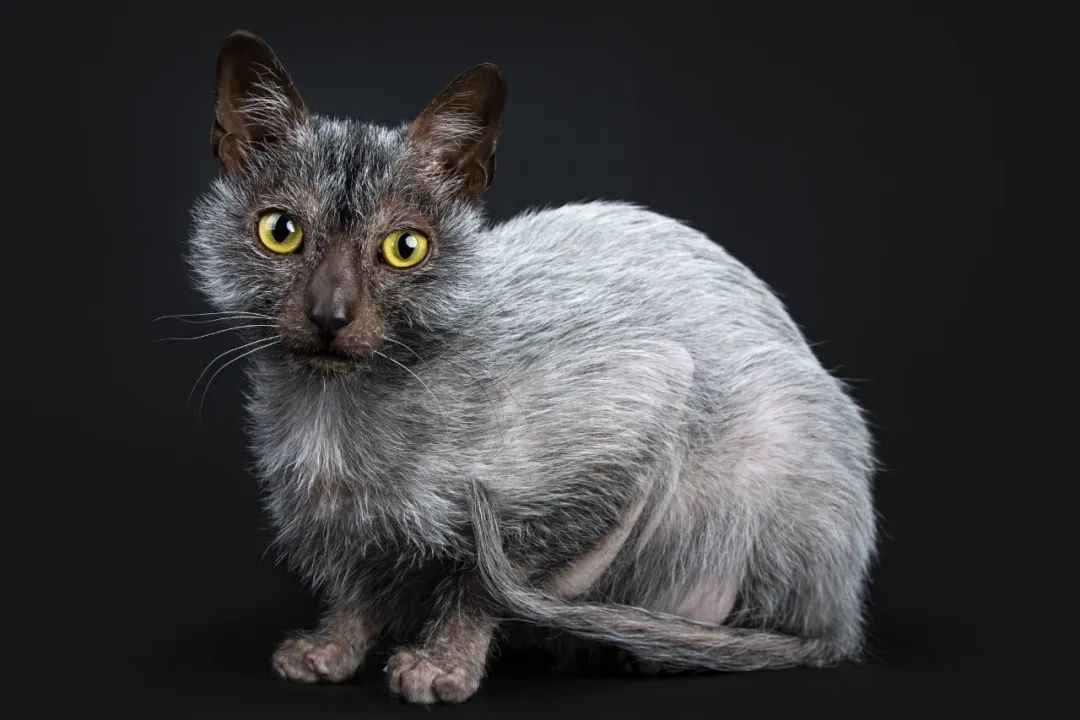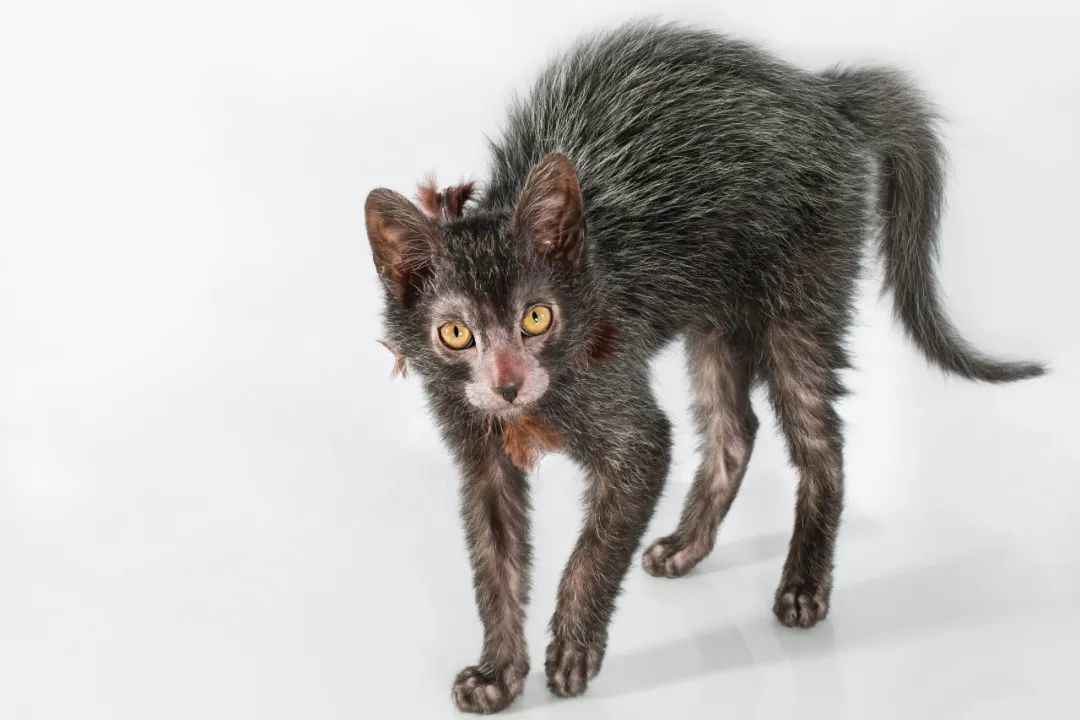Body
The Lykoi’s story began in 2010 when breeders in Tennessee noticed unique kittens born from a hairless cat and a black shorthair. These kittens had hairless patches around their eyes, nose, and ears, with sparse black-and-white fur resembling a werewolf’s coat . Genetic studies revealed the mutation causes follicles to lack essential hair-producing components, resulting in partial baldness and fragile fur . Tests by the University of Tennessee confirmed the mutation was natural, not disease-related .
Despite their wild appearance, Lykoi cats are surprisingly affectionate. They bond deeply with owners, often following them like dogs . Sociable and intelligent, they thrive in multi-pet households and exhibit problem-solving skills, earning them the nickname "clever explorers" . While initially cautious with strangers, they warm up quickly once familiarized .
Source: Images from the Internet, if there is any infringement, please contact the removal of
With a lifespan of 12–15 years, Lykoi cats are generally healthy, with no known genetic disorders . However, their sparse fur leaves them vulnerable to sunburn, requiring UV protection . They also struggle with temperature extremes and need warmth in cold weather . Grooming involves weekly brushing and regular ear checks . Notably, they are not hypoallergenic, posing risks for allergy sufferers .
As a newly recognized breed, Lykoi cats remain extremely rare. By 2025, only ~54 registered individuals exist globally, bred by seven certified catteries . Puppies fetch $1,500–$2,500, with waiting lists due to high demand . The International Cat Association (TICA) officially recognized the breed in 2012, granting it championship status in 2016, solidifying its international standing .
The Lykoi’s creation has sparked debates about "designer cats." Critics argue its genetic stability requires long-term monitoring, while breeders emphasize the breed arose from natural mutation and selective breeding without genetic engineering . The Cat Fanciers’ Association (CFA) maintains the Lykoi is akin to other naturally mutated breeds, enriching feline diversity .
Conclusion
The Lykoi redefines perceptions of felines through its striking appearance and loyal demeanor. While its rarity and cost limit accessibility, this breed exemplifies the intersection of natural evolution and human stewardship. As genetic research advances, the Lykoi’s enigmatic legacy promises to unravel further mysteries.


